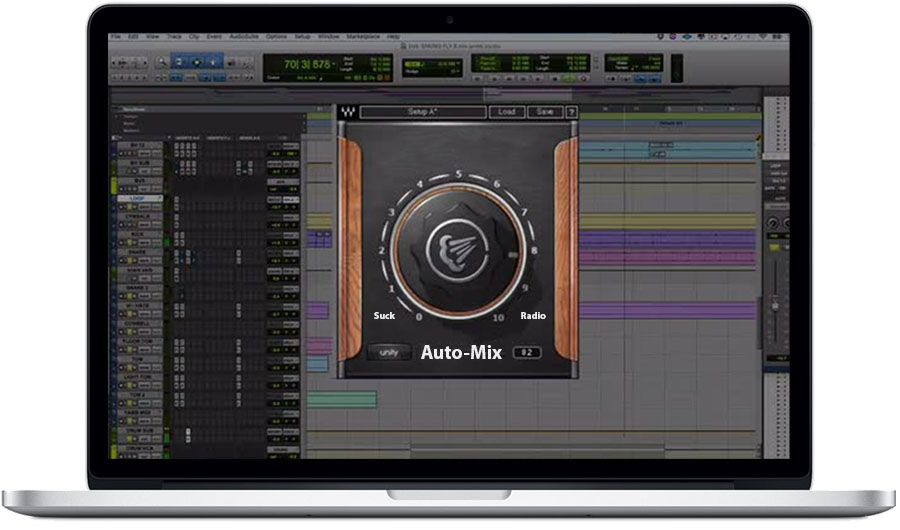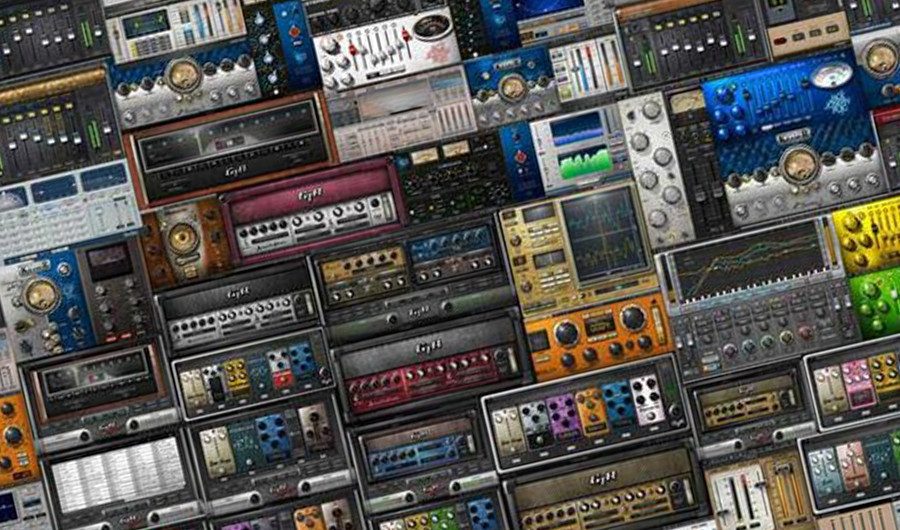You Shouldn’t Record Your Own Band | By Dave Whalen |
In 2017 it’s easy to say technology hasn’t completely turned the audio world on its head.
Let’s face it, every other kid has a MacBook and every MacBook has the ability to churn out million-dollar productions with the click of a few buttons in GarageBand. Or for a couple hundred dollars you can get Logic and the buttons click themselves right?

Every band these days has a guy that does all of this stuff. He engineers, mixes and masters. Heck he even programs the harp solo the band desperately wanted at the end of the breakdown. This guy is extremely motivated and is dedicated to making the best recordings with the limited resources available.
But there’s one problem…
The recordings always suck.
I was that guy:
In fact, I had people paying me to produce recordings that, looking back, weren’t really all that good.
Like many budding engineers I was basically a guy with a set of microphones, a copy of Cubase and no experience. Regardless of how hard I tried, I couldn’t make my recordings sound great. They were good for what they were, but I could never get them to sound full and balanced. As a result, I could never get them to be as loud as a commercial mix.
In other words, they weren’t good.

Tool Problems:
At first I tried upgrading the tools I was using. After all, my compressor didn’t act or sound like an 1176. That’s what the pros use, so that’s why my mixes sounded terrible. I always upgraded to the latest version of Cubase with the new gadgets and the fancy lights.
It didn’t work. In fact, it just left me with less money to spend on what really mattered:
Education and experience.
You see, the sad truth is not that your tools are inadequate.
Professional engineers have been making your favorite records, with a tiny fraction of the options at your disposal, for decades.
The problem was me:
There’s no doubt that I could have listened to my favorite records intently every day for hours, but I wasn’t doing it in an environment that equipped me to reproduce the sounds I heard on them.
I didn’t have anyone to help me break down the elements of the songs and explain why they were important to the mix.
I had no idea what elements went into getting a great drum recording – how to mic the kit for proper phase-coherence, where to position room mics, or how to utilize the various voices in the mix.
Mic position on a guitar cab or how to dial in a good tone? I was completely clueless about that.
I sure as heck didn’t understand that the secret to a great guitar tone has less to do with the gear you’re recording, and more to do with how the player attacks the strings.
Window-reverb on vocal takes, and motivating a vocalist to greatness were ideas that were completely beyond my grasp.
In other words…
I didn’t know what I didn’t know. And my recordings suffered for it.
You shouldn’t record your own band:
Don’t get me wrong, you should by all means pursue your craft and be the absolute best you can be, and often recording demos for your band can be a great tool to achieve that. After all, you can’t gain experience without actually putting the faders up on some material.
The problem is that if you haven’t been directly involved in that world or worked in that environment, you may not know what good sounds like. A well-recorded and produced song is more than just an end result, it’s the product of literally hundreds of small decisions made during the process, starting with how well it’s performed, to the amount of compression an instrument receives. Each one of these decisions requires a degree of experience and knowledge.
I think one of the best ways to acquire the information and experience you need to succeed in audio is to find a studio in your area who has a track record of putting out great productions in your style of music, and hire them to record you. You don’t have to necessarily get a 12-song record done, but ask them to do your 5-song EP. Hire a producer too. The insights you can glean from this process are numerous and invaluable:
- You’ll be able to hear what “good” sounds like as it relates to your music
- You will see first-hand how the engineer goes about capturing music you’re intimately familiar with, which you can use to enhance your own processes
- You’ll be able to witness different engineering techniques and see how they affect the sounds of your individual instruments
- You’re likely to learn about arrangement as you work with your producer to re-arrange the songs for maximum impact
- You can ask your engineer/producer about the finer points of why they are doing what they are doing, and get an explanation in real-time
- You develop a relationship with some local pros which could end up being a mentor/student type of relationship
- As it’s a band project, provided they’re not complete deadbeats, you can get your band to cover part of the cost of your education

Cheaper than college:
Of course nothing in this world is free, so it will cost a bit of money. But hey, it’s still cheaper than signing up at a university (especially if you get those deadbeat bandmates to cough up some money), and you get a sweet record out of the deal!
Even if it’s still a little out of reach for your budget, don’t despair. There are an ever-increasing number of sources where you can get world-class instruction for free or next to nothing. There are also many Facebook groups full of engineers who love to help. Whatever you do, make sure you find a place with people you trust, and get to work learning your craft.
 Nail The Mix is our online mixing school that gives you REAL multi-tracks from REAL bands, plus a mixing class from the producer who recorded it. Past guests include Periphery, Chelsea Grin, Machine Head and State Champs. Join now for instant access!
Nail The Mix is our online mixing school that gives you REAL multi-tracks from REAL bands, plus a mixing class from the producer who recorded it. Past guests include Periphery, Chelsea Grin, Machine Head and State Champs. Join now for instant access!
